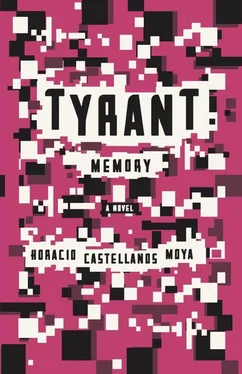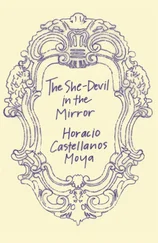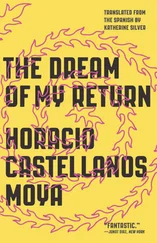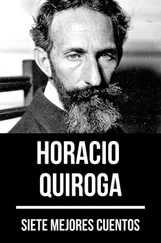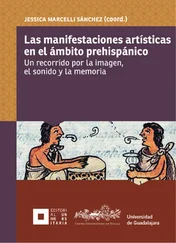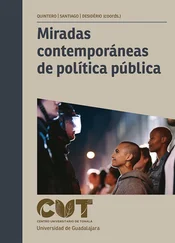Riding in the car, crossing the city on our way to the San José district, where she lives, Merceditas told me she was twenty-three years old, the mother of two children, and she doesn’t know what she’ll do if they execute her husband. Her mother-in-law has taken to her bed and hasn’t eaten a bite of food since Monday, Antonio’s execution has destroyed her. Merceditas says she still has hope her husband will be pardoned because of pressure from the Americans, for he received the highest possible marks in the training course he attended in the United States, where several military leaders had taken a real liking to him; she explained that the Gavidia brothers had been persuaded to participate in the coup by Captain Manuel Sánchez Dueñas, whom they executed along with Antonio. I realized Merceditas knows a lot about the coup, details only people in the military could know; I also discovered she is a young lady of very strong character (for a moment she reminded me of Pati), determined to do everything in her power to stop them from executing her husband and her brother-in-law, and if she seemed so withdrawn during the meeting it was because her grief is so devastating. Merceditas told me that this Captain Sánchez Dueñas, whom I’d never heard of, was the real organizer of the military coup: he was the top student in his graduating class and had been demoted for insubordination two years ago, and then there had been an order for his arrest, which forced him into exile; but he had returned clandestinely last Christmas to organize the conspiracy. My surprise was great when Merceditas said that this Sánchez Dueñas had been hiding out at an estate north of the city, where he’d been joined by other captains from his class, including, of course, her husband, Captain Gavidia, and that the estate is known as “La Layco,” and is owned by Mariíta Loucel. I didn’t have a chance to respond because at that moment we arrived at Merceditas’s house, but after saying goodbye to her, and while Don Leo was driving me home I kept thinking, with astonishment, that maybe Mariíta was the one who had organized the coup, and not the late Captain Sánchez Dueñas. Don Leo brought me back to the here and now when he said that a car with plainclothes policemen, according to him, had been following us at a prudent distance the whole way from Doña Chayito’s to Merceditas’s house.
Friday April 14
Doña Chayito dropped by at ten this morning; she was carrying a copy of the communiqué hidden under her slip. She reminded me that I needed to make as many copies as possible to distribute among my acquaintances, it was the only way to spread the word about us, and the printing presses are all controlled by the general’s spies. I told her I had tried to speak with Colonel Palma to find out if they were allowing visits on Saturdays, but he still wasn’t taking my calls; we agreed to meet tomorrow in front of the Central Prison. Doña Chayito stayed only a very short time. I suggested she be very careful, my house as well as hers was under surveillance. I immediately got down to work: I sat down in front of Pericles’s typewriter and churned out a dozen copies. At noon I went to my parents’ house. I asked Don Leo to come pick me up and take me there; I was carrying four copies folded up in an envelope, stuffed into my stockings on the inside of my right thigh. I told Father what I’d been up to; I listed who the copies are for: one for the business attaché at the British embassy, one for the board of directors of the coffee-growers association, another for him to take to Santa Ana, and another for him to keep; I asked him to make as many more copies as he could to distribute among his friends and acquaintances, especially in the diplomatic corps. He asked me if we’d already sent one to the American Embassy. I told him not yet, but I would find a way to personally give one to Mr. Gardiner, the vice-counsel, considering his friendship with Clemen. Father said he was impressed by my initiative; he said that the decision to sentence Don Agustín Alfaro, Dr. Guillermo Pérez, the director of Banco Hipotecario, and so many other respectable people to death has convinced everyone that we must overcome our fear and find some way to get rid of that criminal warlock. He then promised to send a copy to the American Embassy through his own contacts. He warned me to act with the utmost discretion.
By the afternoon, I’d made a decision: I wouldn’t go to the embassy but rather to Mr. Gardiner’s house, where Clemen spent the night after the coup, the last place he was seen; that way I wouldn’t compromise Pericles, who doesn’t like the gringos at all (and they don’t think highly of him, either). I called Doña Tracy, Mr. Gardiner’s wife; she knows me from certain social events and also thanks to my family, though we have never been particular friends. I asked her if she might have a moment to spare for me this afternoon, I wished to converse with her in person. Surely she thought this had to do with news about Clemen, for she responded very politely: she said she was at my disposal. I left right away for her house. I had the impression that the servant who opened the door for me, a brunette girl with delicate features, had been eagerly waiting for me: she led me into a living room, where Doña Tracy was talking on the telephone, and offered me a glass of myrtle juice. The vice-counsel’s wife is an outgoing young woman, platinum blonde, who once dreamed of being an actress and likes to socialize with young Salvadoran artists. After our greeting, she asked me if I spoke English, for she prefers to converse in that language; I told her I am quite out of practice, even though I studied it as a teenager. Then I told her the purpose of my visit; she told me she would gladly give a copy of the communiqué to Mr. Gardiner, and she would personally make more copies to distribute among her women friends in the diplomatic corps because it is unacceptable for that “evil man” to remain in power, ruining the country and assassinating its best men. I was surprised by her vehemence. Then, without further ado, she asked me if I had any news about Clemen. I was prepared to broach the subject only if she brought it up, because one never knows what secrets or complications there are in such a situation. I told her the truth: that I know nothing about my son’s situation, and I pray he has managed to leave the country and find a safe haven. Then she asked me, with a mischievous look on her face, if I had heard that Clemen had hidden in that house after the coup failed; I answered that I had heard something to that effect, but that I understood one mustn’t inquire, one must be discreet about such delicate matters. She recounted the long night they’d spent, she and Mr. Gardiner, conversing with Clemen about the ins and outs of the coup; she went into great detail about how they snuck him out disguised as a domestic servant; she made affectionate reference to his wonderful sense of humor and his thespian talents. At that point the servant girl, whom she called Indalecia, entered; she served us more myrtle juice. It was because of Indalecia’s friendship with Clemen, Doña Tracy said once she’d left the room, that he’d had no trouble getting into the Gardiners’ house. On the way home I felt lighthearted, happy, content, not only because I had carried out my duty effectively but also because those affectionate words regarding my son soothed my spirit, so wounded by Mila’s infamy.
I invited Carmela and Chelón and Mingo and Irmita to dinner. I told them to come early, at six, so we would have more time, because the curfew begins at ten. María Elena and I made the ripe plantain empanadas filled with refried beans that Chelón is so partial to; also chipilín tamales and pupusas stuffed with cheese flavored with loroco flowers. I suppose I longed for some conviviality in the midst of so much misfortune, needed to feel my husband through his closest friends, even if he couldn’t be present. Pericles has always said that Mingo is an excellent poet pretending to be a journalist, and Chelón a great painter pretending to be a poet. We dined to the tune of political gossip, nobody talks about anything else in this city; we also laughed at Serafín’s expense, the poor man still hiding out at the Guatemalan embassy. Carmela brought some delicious cashew-apple butter for dessert. After dinner, Mingo told a story that made all our jaws drop: Major Faustino Sosa, the air force squadron commander who was executed by a firing squad on Monday on the patio of the Black Palace along with General Marroquín and Colonel Calvo, was, in fact, innocent, had absolutely nothing to do with the coup; the rebel officers who took over the airport under the command of Jimmy, Angelita’s son, had even locked Sosa up in a barracks because he refused to support them and was critical of their disloyalty to the general. So why did they execute him? we asked. Nobody knows whose idea it was to include his name among the rebel leaders that were listed on the circular they sent to the regional commanders to demand their support, Mingo explained, and the poor man remained locked up, never suspecting that he was implicated in a rebellion he opposed yet would nevertheless cost him his life. Once the coup had already failed, Mingo continued, and the cavalry troops Jimmy commanded were being forced to retreat from the airport by the contingents loyal to the general, Major Sosa was freed, but nobody knows if he was warned that they had used his name in the communiqué; in any case, the innocent man went happily to meet the government troops, not knowing that they would immediately place him under arrest. Carmela said she simply couldn’t understand: if Sosa hadn’t participated, and if everybody knew he hadn’t participated and that the rebels had used his name without his consent, why was he executed? Mingo shrugged his shoulders: he said it seems the general wanted to make him pay for the betrayal of the pilots who had flown into exile, taking all the planes with them, and leaving the general without an air force.
Читать дальше
